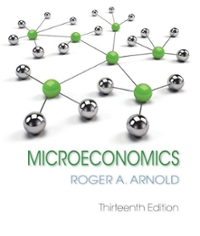Question
11)At the market equilibrium price, which of the following is true? Question 11 options: A)Quantity demanded=Quantity supplied. B)Quantity demanded>Quantity supplied. C)Quantity demanded
11)At the market equilibrium price, which of the following is true?
Question 11 options:
A)Quantity demanded=Quantity supplied.
B)Quantity demanded>Quantity supplied.
C)Quantity demanded Question 12(1 point) 12)Which of the following will result in themaximum combined consumer and producer surplus? Question 12 options: A)The highest possible level of market competition. B)A lack of market competition. C)The existence of external benefits or costs. D)Asymmetric information. Question 13(1 point) 13)When markets arenot in equilibrium, what will be the result? Question 13 options: A)Higher levels of productive efficiency. B)A deadweight loss. C)Higher levels of allocative efficiency. Question 14(1 point) 14)What type of economic system letsmarkets operate freely, without any government intervention? Question 14 options: A)Socialism. B)Laissez-faire capitalism. C)Communism. Question 15(1 point) 15)If a price is setbelow the market equilibrium (price ceiling), what will be the result? Question 15 options: A)A surplus. B)The equilibrium quantity. C)A shortage.
Step by Step Solution
There are 3 Steps involved in it
Step: 1

Get Instant Access to Expert-Tailored Solutions
See step-by-step solutions with expert insights and AI powered tools for academic success
Step: 2

Step: 3

Ace Your Homework with AI
Get the answers you need in no time with our AI-driven, step-by-step assistance
Get Started


